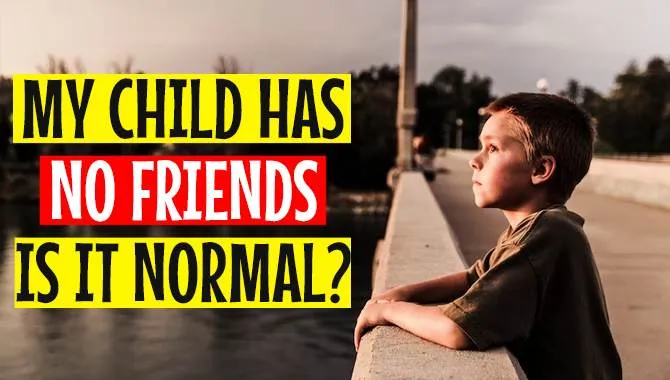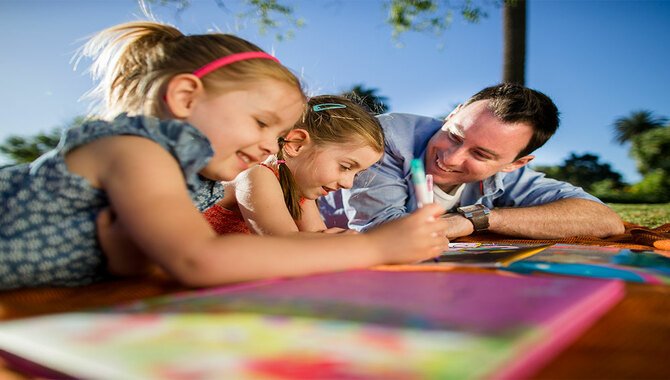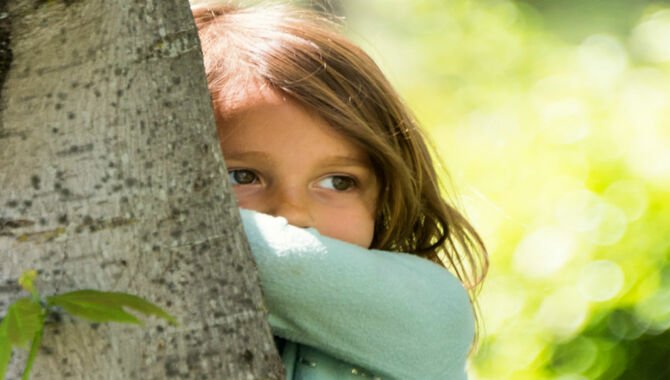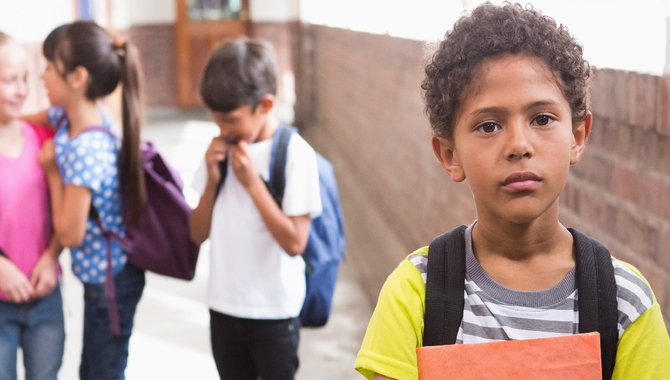It can be tough for kids to make new friends, especially if they’re shy or socially awkward. But don’t worry – there’s no need to feel worried or sad. In fact, most children eventually learn how to make and keep friends, and even those who struggle at first usually become more social as they grow older.
Here are some tips on identifying whether your child has trouble making friends and tips on how to help them become more social. Finally, reassure your child that they’re not alone and that there’s nothing wrong with them just like everyone else, they need some time to adjust to socializing.

How To Identify Whether Your Child Has Trouble Making Friends

Making friends can be challenging for children, but it’s not always a bad sign. If your child is having trouble making friends, here are some tips to help them out. First, try and understand why they’re struggling. Is it because they’re shy? Do they have trouble relating to other children?
Once you have a better idea of the problem, you can start to look into potential solutions. Some of the things you can do include looking into therapies and classes that may be available in your area. Additionally, getting involved with extracurricular activities can be a great way for your child to make new friends and socialize. If all else fails, try hosting a playdate – something that all children love.
Prepare Your Child To Make And Keep Friends

It can be tough when your child has no friends, but it’s not abnormal. In fact, it’s quite common for kids not to have many friends during their elementary and middle school years. Preparing your child for this social transition is key. Make sure they are socialized early and provide opportunities for them to interact with other children.
Let them explore on their own and be creative – this will help them feel comfortable in any social situation. Teach them how to express themselves socially and listen attentively. These skills will help them make friends easily.
1. Teach Social Skills Sooner Rather Than Later
Encouraging social skills from an early age is important in order to help your child feel better equipped to make friends. Activities like playing board games or going for walks can help develop relationships while setting boundaries and expectations will ensure that kids know when it’s time to stop talking or playing with a friend. Be patient – it takes time for children to build lasting friendships.
2. Explain That Friends Change — And That’s Okay
Children naturally want to make friends and join social circles as they grow. However, it can be tough when that doesn’t happen right away. It’s okay for kids to feel a bit lost at first – this is just part of the growing process. Share with your child what qualities make a good friend – things like shared interests and common values are great starting points.
Help them develop social skills by providing opportunities for play and interaction with other kids their age. If friendships start to wane or dissolve, don’t hesitate to draw on past experiences in order to offer guidance during these difficult times.
3. Get Them Involved
Getting your child involved in social activities is one of the best ways to help them develop strong communication skills. Going to playgrounds, parks, and other events will allow them to meet new people and learn how to interact with them. Additionally, giving your child toys that allow him or her social interaction will help build their social circle.
4. Encouraging Social Interaction From An Early Age
As children grow up, they tend to become more independent. This can be a good thing as it allows them to take charge and make decisions on their own. However, this development can also lead to problems making friends. One way of combating this is by encouraging social interaction from an early age.
Activities like playing with dolls can help your child develop strong relationships that will last throughout their life. By doing so, you are likely to see less anxiety and stress in the future when it comes to socializing or networking with others.
5. Setting Up Your Child For Success
Starting socialization from a young age can only go so far. It’s important to provide your child with opportunities for meaningful play that will help them develop skills such as communication, problem-solving, and social interaction. Going on walks or playing games together are great ways of doing this.
However, it’s even more important to encourage children to talk to others and build close relationships. With time and patience, these skills will eventually blossom into strong friendships. As long as you remain supportive in all aspects – verbal encouragement and positive reinforcement included – your child will be well on their way toward a successful social life.
6. Start With Introductions
Introductions are one of your child’s most important tools for making friends. They can help you connect with other parents and their children, as well as introduce them to new activities and cultures. If your child is reluctant to socialize, it might be because they have personal issues that need to be worked out first.
Once your child starts making friends, it’s important not to lose focus on them or take things for granted. Keep an eye on how these friendships develop and make necessary adjustments accordingly.
7. Listen To Your Child And Provide Support
Parenting is never easy, and it can be even harder when your child experiences the loss of friends. However, you will get through this tough phase together with a little patience and support. Be there for your child when they experience the loneliness that comes with growing up – offer conversation, activities, and outings as ways to help them cope.
Help your child develop social skills by teaching them about friendship at an early age. This way, they will have a solid foundation on which to build their lifelong friendships.
8. Tips For Fostering A Positive Relationship With Others
Children need to develop good social skills so they can get along well with others. This will help them build strong and healthy relationships that last long. Here are some tips on how you can help your child foster a positive relationship with others:
Teach them the importance of being social through different role-playing situations together. This way, they understand what it takes to be successful in life – including making friends.
Help them learn how to communicate effectively by breaking down complex ideas into simpler terms. Doing this will make both parties feel understood and appreciated.
Finally, let your child know that it might take a little bit of time, but eventually, friendships grow gradually over time. Even if they don’t start off as planned at first!
Is It Normal For Children To Be Shy Or Socially Awkward?

Children are social creatures, and it is natural for them to want to socialize. However, many children may struggle to form social relationships at some point during their development. This can be due to genetics, temperament, and environment.
However, there are treatment options available, and they should not be ignored if your child struggles with a social anxiety disorder (SAD). Encouraging your child to participate in activities that they enjoy can help them feel better about themselves and make friends more easily.
How Can Parents Help Their Children Become More Social?

It can be hard for kids to make friends when they’re not invited to play. It can be frustrating for parents when their child is not socializing as expected. However, parents can help by encouraging their children to join neighborhood activities and/or joining organized sports programs.
Additionally, parents can access many online resources, like Playdate Central and Kidzworld Network. These allow children to find friends worldwide, and parents can easily monitor their children’s activities.
How Can Kids With No Friends Feel Normal?

Being a kid is a great time. You’re constantly exploring, trying new things, and making new friends. However, for some kids, this time is disrupted by a lack of friends. This can lead to feelings of loneliness and depression and can have long-term consequences.
Luckily, there are ways for kids to feel okay and normal despite having few friends. Parents can help by providing a safe and positive environment and by providing positive role models for their children. Additionally, it’s important to encourage close friendships from an early age.
This way, kids will be better prepared for life when they eventually enter school and start socializing. Creating close friendships is an important life skill, and kids who have plenty of them are generally happier and healthier.
Conclusion
It can be hard to see your child struggling socially as a parent. It can be especially difficult when your child doesn’t have any friends of their own. However, there is no need to feel alone – parenting a child who has trouble making friends is perfectly normal.
In this blog, we discuss different tips on how to help your child become more social and how to cope when they don’t have any friends. We hope this blog will help you better understand and support your child during this time. Thank you for reading!
Frequently Asked Questions

I’m a writer and blogger who loves to talk about entertainment, culture, and relationships. I love to share my thoughts and insights on these topics, and I’m always looking for new ways to engage with my readers. I’m also a big fan of learning new things, so I’m always exploring new areas of interest.
